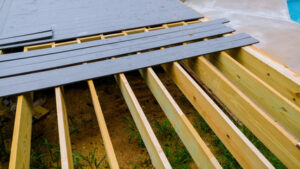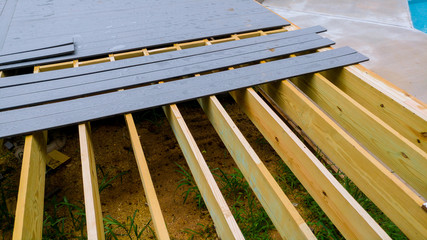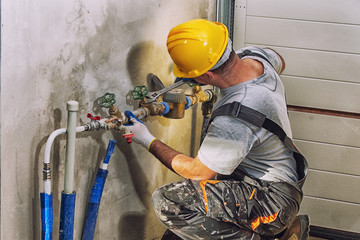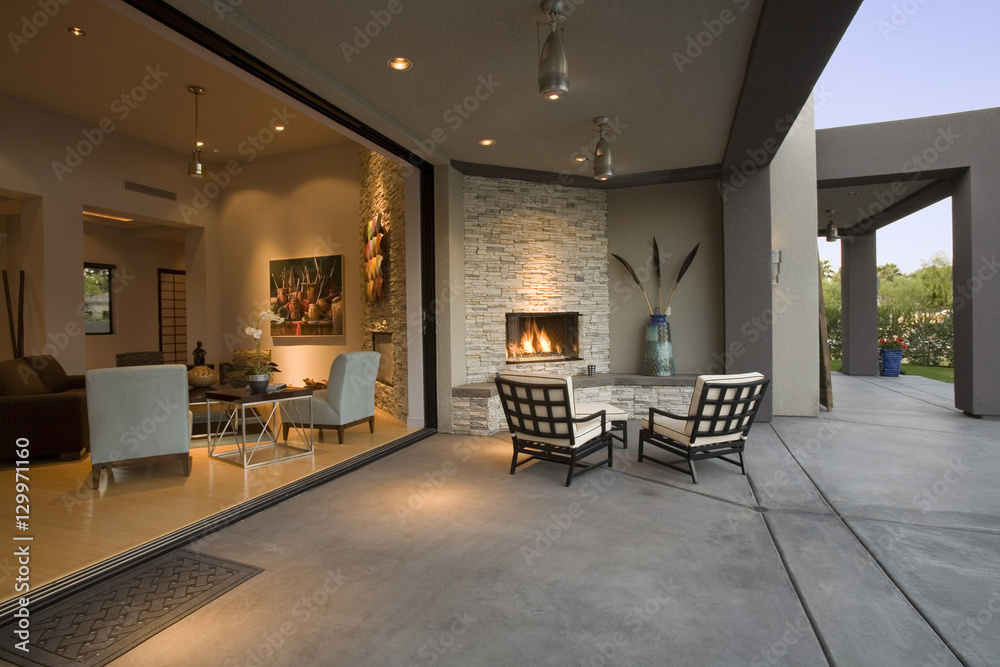A properly installed deck can be a safe and beautiful extension of your home. While experienced do-it-yourselfers can sometimes build their own deck, most projects require professional assistance.
Proper ledger board fastening is crucial to a long-lasting deck. Using approved structural hardware ensures the deck will withstand lateral loads and prevent water infiltration. Contact Mount Joy Company LLC for professional help.
The design of your deck plays a crucial role in its overall aesthetic and functionality. Whether you’re starting from scratch or modifying an existing outdoor space, taking the time to carefully plan each step of your project can yield a final result that is both beautiful and functional. From the size and layout to choosing the right materials, every detail counts.
During the planning stage, consider the following factors to help you create a stunning and functional deck.
Layout & Purpose
Determine the purpose of your deck. Will it be a spot to entertain guests, enjoy family barbecues, or simply relax outdoors? The answer will influence its size, layout, and other features.
Also, take into account any potential additions that you may want to make down the road, like a hot tub or custom balusters. Those additional elements can impact the overall cost of the project.
Factors such as the location and height of your existing back or side door can also impact the location, layout, and design of your deck. Ideally, you want to integrate your indoor and outdoor spaces for a harmonious transition between the two.
The weather conditions in your area should be taken into consideration as well. Consider things like prevailing winds, rain fall, and temperature swings. Incorporating features to manage these elements will protect the integrity of your deck and help you avoid expensive repairs or replacements down the line.
It is also important to familiarize yourself with your local building codes and permit requirements. Failing to comply can result in fines or forced deconstruction. For instance, codes often dictate footing depth, frost line placement, railing height, and load-bearing requirements. A professional contractor will have the skills and tools necessary to understand and adhere to these requirements. In addition, they can ensure that your deck is built to the highest quality standards and meets all regulations. You can save time and money by working with a licensed and insured contractor. Moreover, they will be able to navigate the complex paperwork and bureaucracy required to obtain a permit and pass inspections.
Determine the Materials
A deck is more than just a wooden surface that you can walk on, it requires a sturdy frame that can support its weight. It also needs footings, posts, and beams to provide stability. For this reason, it is important to carefully plan the project before beginning construction. A blueprint is an invaluable tool that provides a roadmap of the entire project. This helps you avoid costly mistakes and save time.
You will also need various tools to complete the job. Some of these tools are simple enough to handle on your own, while others require a professional handiwork. A framing square and a speed square are both indispensable for carpentry tasks. A speed square has marked measurements along its edges to help you ensure straight lines and a square cut, while a framing square has a ruler with changeable heads that serves multiple purposes. A combination square is another useful tool that combines the functions of both a speed and framing square.
To build the deck, you will need concrete to anchor the posts and footings. While many do-it-yourselfers underestimate how much concrete they will need, a calculator can help you estimate the exact amount of materials. This is especially helpful for larger projects that involve elevated decks.
Next, you will need a ledger board to connect the deck to your house. You should consider using a pressure-treated lumber for this purpose, since it is more durable than raw wood. You will also need joist hangers and lag screws to secure the ledger board to the foundation. You should use lag screws that are rated for outdoor use.
Once the ledger board is installed, you will need to install the joists. The joists will support the decking boards, which are typically made from cedar or pressure-treated lumber. You can also choose from other options such as ipe or teak. However, these exotic woods are more expensive, and their environmental impact is questionable. Tim Gordon notes that some ipe is illegally logged from natural habitats in South America, while most teak comes from plantations in Southeast Asia.
Secure Permits and Approvals
Depending on your location, it may be necessary to secure permits and approvals before starting construction. A permit is a document that verifies the project meets local codes and standards, safeguarding you from structural failures that can put your family or guests at risk. It also helps prevent issues that could impact the value of your home and/or make it difficult to obtain insurance coverage for damage caused by an unpermitted structure.
Whether you’re building an entirely new deck or adding an extension to an existing one, it’s important that you research your specific requirements and ensure you have all of the documentation needed for the application process. This typically includes site plans, blueprints, and other information like materials, footing locations, and the type of foundations that will be used. Having these plans properly prepared is essential, as even the smallest mistake can lead to your permit being denied.
It’s also a good idea to get the help of professionals when it comes to preparing these plans. A reputable design and engineering company will know the local regulations, which can save you a lot of headaches and delays down the road. It’s also a good idea to back up all of the documentation you submit, including any completed applications and permits, digitally. This can be useful if you ever decide to sell your home, as the potential buyer will likely need this information when applying for a mortgage.
You’ll also need to secure HOA or condo approval, if you live within a community or apartment complex. This will help ensure that your deck is in compliance with any restrictions on exterior structures, and will not disrupt the look of the area. In some cases, this may require the use of a prefabricated deck system that is approved for the area.
Finally, you’ll need to apply for any electrical permits that are required. This may include stairway lighting, hot tubs and/or spas, or other equipment. In many cities and towns, electrical work must be performed by a licensed electrician who is certified to file for these types of permits.
Build the Deck
A deck can be an excellent place to host a social event, watch the sunset or just relax. However, the deck must be built properly to avoid structural failures and ensure the safety of everyone who uses it. In response to several deck failures and investigations into their causes, building codes have become stricter and many cities require a permit and inspections before construction of a new deck or the resurfacing of an existing one.
Building a deck from scratch requires a lot of planning and work. If you’re resurfacing an existing deck, the first step is to carefully inspect it to make sure the substructure is still sound and that the fasteners are secure. If there are issues, it’s usually best to rebuild the entire structure to ensure a strong, safe deck that will hold up to years of use.
The next step is to dig and pour the footings. The number, size and depth of the footings will depend on the size and weight of the deck, the soil type and climate zone. When the footings are set, a ledger board is attached to the house and joists are installed. It’s important to use only approved hardware when connecting the ledger board and joists. The chemicals in treated wood can be corrosive to some types of metal.
Deck railing posts are installed on top of the joists and must be able to withstand high lateral loads from people stepping on or off the deck. They can be made from metal or weather and insect-resistant wood. The railing posts should be secured to the joists with blocking to prevent them from twisting under pressure.
If a deck has stairs, stair stringers need to be installed. These are typically made from insect-resistant wood and attach to a joist or a stair header depending on the location of the stairs. Stair stringers are usually placed closer together than joists to accommodate the extra force generated when someone steps down on a stair.
If your deck is attached to the house, it’s important to install flashing between the deck and the house to prevent water from entering. Water can damage the connection between the deck and the house, create conditions for fungal growth and cause rot.









